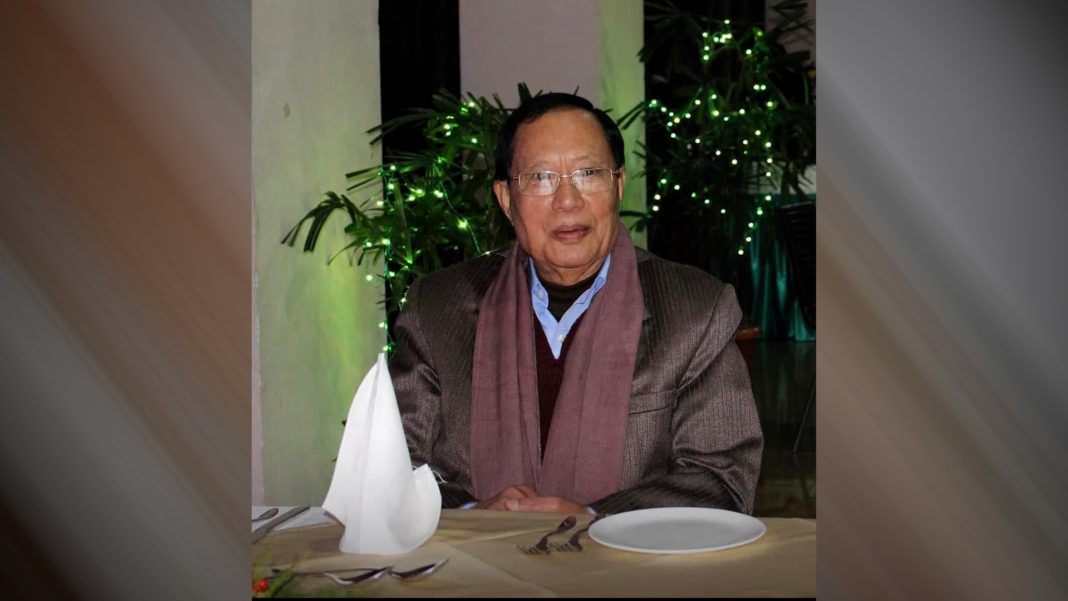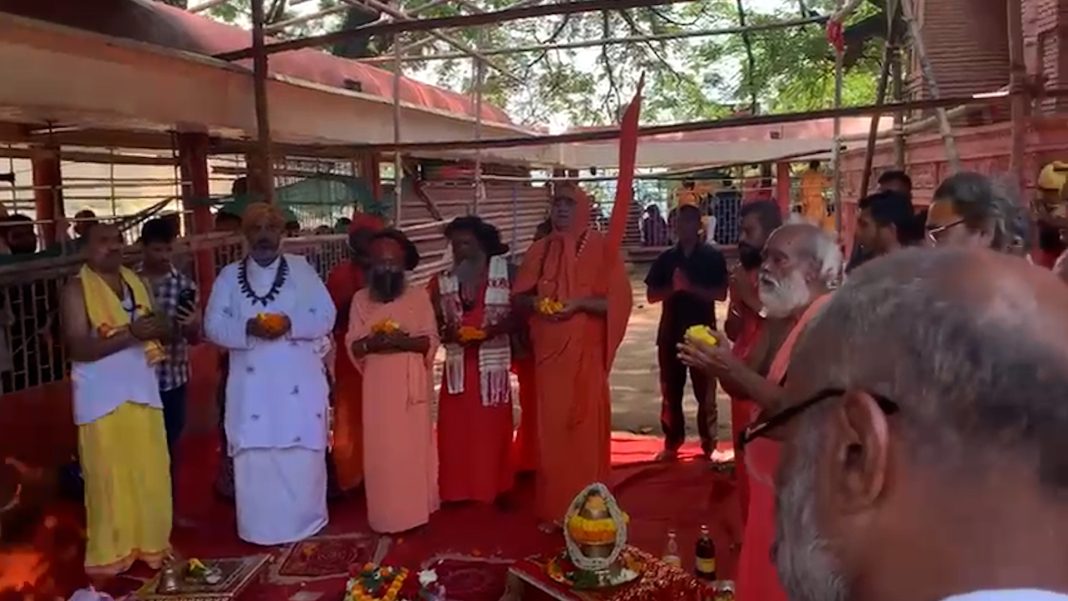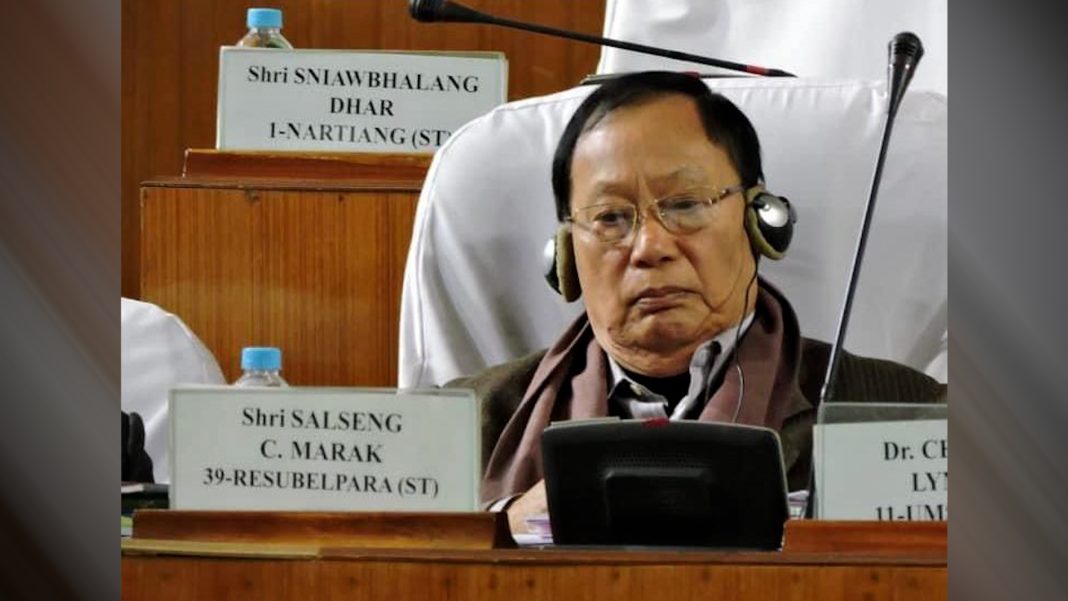Tura, Aug 17: For many in the state, Baghmara is usually associated with remoteness and thick jungles. But many are unaware that this remote forested region has gifted the state two of its best known political leaders- Meghalaya state’s founder Chief Minister (Late) Captain Williamson A Sangma, and another Congress stalwart and former Chief Minister, Late Salseng C Marak.
While the stories on Late Captain Sangma are legendary, and can fill an entire chapter in the history books, little is known to the outside world about the roots of Congress stalwart Late Salseng C Marak who was born in Baghmara on 16th January 1941.
The Meghalayan Express caught up with former state information officer Mr Grimchi C Marak- younger brother and last surviving sibling of Late Salseng Marak. He was Deputy Director of the Directorate of Information and Public Relations, Government of Meghalaya.
Born to parents Mekinsen Rongmuthu and Susilla C Marak, Salseng was the eldest among three brothers- his siblings being Grimchi and Jangseng.
“Our father was a forester in Baghmara under the then British Government when the entire Garo Hills was part of Assam. We spent our early days over there until our father resigned from the forester’s job and shifted the family to Nishangram (near Damra),” recalls Grimchi Marak.
He remembers his brother’s love for football as a young teen.
Late Salseng completed his primary school education from Nishangram and was then brought to Tura where he got admitted in Tura Government High School at Chandmari.
“My brother cleared his Matric from the Tura Government High School in 1960. From there he went to Union Christian College at Barapani, Shillong,” narrated Late Salseng’s younger brother. He also studied at the prestigious Scottish Church College in Kolkata.
After his graduation he returned to Nishangram to serve as an assistant teacher of the government aided high school from 1965 to 1968.
It was there at Nishangram that Salseng met his future wife.
He resigned and came to Resubelpara and joined the Resubelpara Girls High School and became its headmaster- a position he held until 1971. He got married and settled down at Gajingpara village of Resubelpara and leaves behind two sons and four daughters.
What made the former chief minister stand out from the crowd was his dress code. He had a fondness for the iconic Indian brand- the white safari suit and he wore it to his best for every occasion of his political career.
From remote Garo Hills, he pushed his way through all odds to script a name for himself in politics and in the history of the State.
A protege of Late Williamson A Sangma, Late Salseng C Marak entered active politics in 1970. In 1972 he was elected to the first house of the Meghalaya Legislative Assembly as a candidate of the All Party Hill Leaders Conference (APHLC), from Resubelpara constituency.
Since then, he was consecutively elected as the MLA of Resubelpara from the Indian National Congress (INC), for another five terms till the sixth house in 1998.
In 2013, Late Salseng C Marak was elected for a seventh term to the Meghalaya Legislative Assembly.
He served in various capacities of the assembly Committees and Government Undertakings, some of which were, as General Secretary and President of the Meghalaya Pradesh Congress Committee (MPCC); and as a Minister in the Meghalaya Cabinet responsible for portfolios like Industries, Excise, Food & Civil Supplies, Public Health Engineering (PHE), Public Works Department (PWD), Forests, Soil Conservation and Tourism.
The former leader also served as the Chairman of the State Planning Board.
Late S C Marak was the sixth Chief Minister of the state from 1993 to 1998, and also held the office of the Chief Minister for only 12 days.
During his tenure as the Chief Minister from 19th February 1993 to 10th March 1998 he took up important cabinet decisions that were crucial for the development and progress of the State notably among them is the phased establishment of the Indira Gandhi Regional Institute of Health & Medical Sciences at Shillong.
This significant decision of the cabinet under the leadership of Late S C Marak, has improved and transformed health care services in the state providing accessible and quality services. For the ease of students, patients and citizens travelling to Guwahati and Kolkata Late S C Marak’s leadership facilitated the acquisition of land and building at Rehabari, Guwahati for setting up of a Meghalaya State Guest House at Guwahati and the construction of the Second Meghalaya House at Eastern Metropolitan Bye-Pass Kolkata.
Late S C Marak, also brought reformative changes in education with the establishment of Navodaya Vidyalaya in West Khasi Hills at erstwhile Mawkyrwat subdivision and with the major decision of taking over of Primary education permanently from the District Council. To improve productivity and quality and to manage garden crops, fruit trees, vegetables and ornamental plants he created a separate Directorate of Horticulture under the Agriculture Department. He also set up the Meghalaya Economic Development Council for the purpose of addressing the economic development and ensuring balanced and rapid development of all parts of the State.
Late S C Marak was also known for his integrity, leadership and practice of clean politics in the State. On 16th August 2024, Late Salseng C Marak passed away and is survived by his children. He has left behind a legacy that will continue to inspire future generations. He will be remembered for his contributions to the state and for his steadfast dedication to the cause of clean and corrupt free politics.






